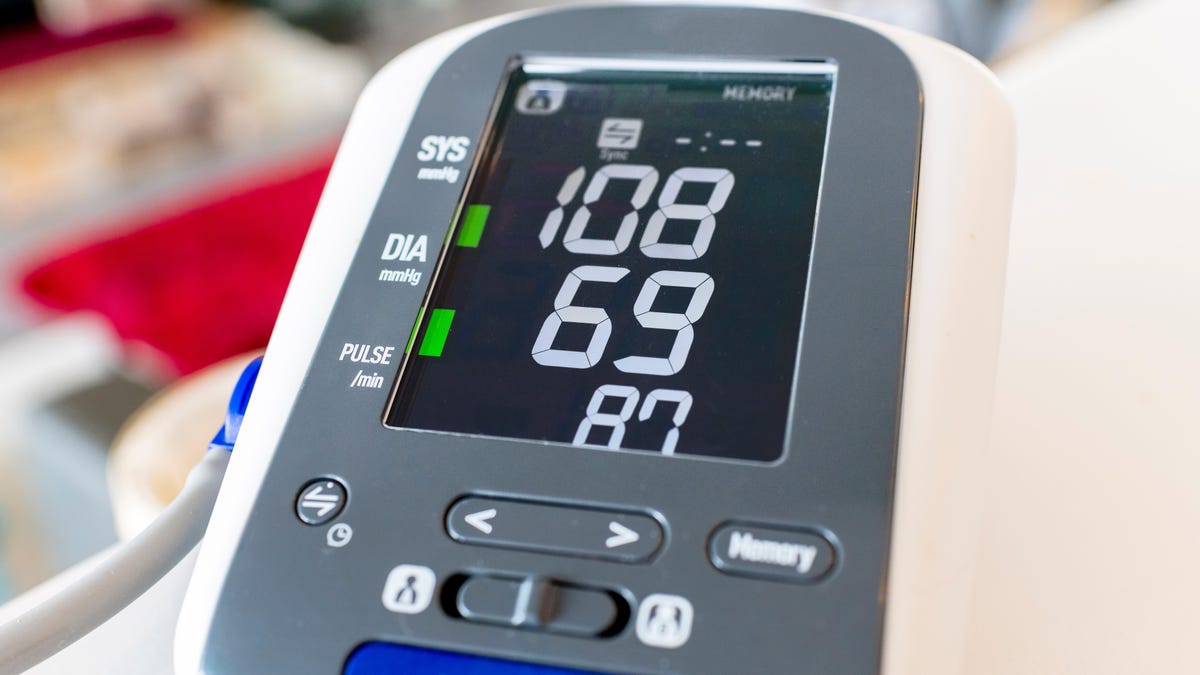Three Things That Can Skew Blood Pressure Results

Your blood pressure is a measure of the pressure your circulating blood puts on the walls of your arteries , and is expressed as two numbers: your systolic pressure (the top number, so “120” in 120/70) represents the applied force. on your arteries as your heart beats, and diastolic pressure (the bottom number) is the force exerted when your heart rests between those beats. This pressure is expressed as “mmHg. Art., which means “millimeters of mercury.”
Normal blood pressure is usually considered to be less than 120 systolic and 80 diastolic (usually spelled “120/80 mmHg”), and anything higher is considered high blood pressure (hypertension). But it also shouldn’t be too low; anything below 90/60 is considered low blood pressure (hypotension). Both can indicate and cause health problems ranging from dizziness and confusion to stroke and heart attack.
This is why your doctor constantly checks your blood pressure when you have any kind of examination using a cuff wrapped around your upper arm (you can also check your blood pressure at home quite easily these days). But if you’re like me and always rush to your doctor’s appointment and arrive apologetically sweaty, you may wonder if your blood pressure readings are accurate when taken under unusual physical conditions. Answer: Yes, blood pressure measurements can be affected by several factors.
white coat syndrome
One of the main reasons why your blood pressure readings can be inaccurate is the so-called white coat syndrome , an anxiety that some people experience in the doctor’s office. According to the American Medical Association, this can lead to measurement errors of up to 26 mmHg. Art ., which can easily cause your readings to temporarily fall into the “high blood pressure” range.
If your doctor thinks you may have something like white coat syndrome, they may suggest checking your blood pressure at home regularly or recommend that you arrive early for your appointment so you have time to relax before the test.
Mechanics
The physical location when you get your blood pressure taken can have a big impact on your numbers, especially if you check your blood pressure at home:
- Back support. Sitting in a chair that supports your back will reduce the number of mistakes; an unsupported back can increase readings by 10 mmHg. Art .
- Hand support. If you hold your hand below heart level, readings can vary by as much as 23 mmHg. It is best to support your hand so that you can easily hold it at the right height.
- Legs and feet. Sitting cross-legged can add up to 10 mmHg to the reading. Art., and the lack of support on the legs can add another 10 mm Hg. Sit with your legs uncrossed and with your feet flat on the floor.
- Naked hand. Blood pressure measurement with a cuff worn over one or more layers of clothing can add up to 40 mmHg.
- Cuff size. Finally, the cuff of the blood pressure monitor must be the correct size. Studies have shown that heavier people often get inaccurately higher readings because the standard size cuff is too small and compresses the arms too much. It is important that the cuff used is the correct size.
Behavior
Even if your body is physically fit for reading and you don’t feel anxious about visiting a doctor, other activities can affect your reading:
- Speaking. Yes, talking while taking your blood pressure can boost your readings by as much as 15 mmHg.
- Full bladder. If you have your blood pressure taken, urinate first: a full bladder can add up to 33 mmHg . Art. to your systolic pressure .
- Food and medicine. Not surprisingly, a large meal shortly before a measurement, or alcohol, nicotine, and caffeine consumption just before a test, can skew readings. You must avoid food or substances for some time before the study.
It is recommended to set a 5-minute rest period before measuring blood pressure: if you blow into the doctor’s office or come home from work and immediately sit down to measure, you may get higher numbers than you should.
It is important to note that healthcare professionals are aware of these factors and may make adjustments when reading the results to account for them. But if you want to get the most accurate results and avoid false alarms, keep this in mind the next time you put on your cuff.